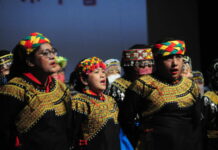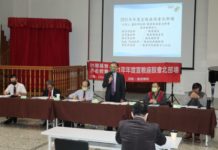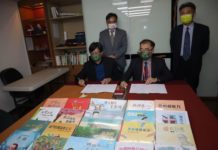Taiwan Church News
3160 Edition
September 17-23, 2012
General Assembly News
WCC and Yushan Seminary co-sponsor indigenous theology seminar ahead of WCC 10th Assembly
Reported by Lin Yi-ying
Written by Lydia Ma
The World Council of Churches (WCC), the PCT, and Yushan Theological College and Seminary co-hosted a seminar at Yushan Seminary on September 17, 2012 on the theme of indigenous theology in the 21st century. This 3-day seminar was held primarily in preparation of WCC’s 10th assembly, which will take place in October 2013 in Busan, South Korea. Indigenous theology will also be addressed and discussed during the WCC assembly.
Delegates who attended this seminar at Yushan came from various countries such as India, New Zealand, Mexico, Peru, Canada, Finland, Guatemala, Chile, and Philippines. WCC program executive for Just and Inclusive Communities, Rev. Dr. Deenabandhu Manchala, gave a brief introduction on how and why the committee was established in the first place.
Manchala underscored that after the WCC assembly held in Vancouver in 1983, the committee set out to eliminate racial discriminations witnessed within churches and the rest of society, especially prejudices against indigenous peoples, migrant workers, immigrants, Dalits in India, and people with disabilities.
During this seminar, delegates held small group discussions on topics such as “The challenge facing indigenous peoples in India”, “Recent trends in indigenous theology”, “Indigenous theology movements in different countries”, and “How to make indigenous peoples’ voices heard at the WCC 10th assembly”. PCT Associate General Secretary Sing ‘Olam spoke on the present circumstances facing indigenous peoples and how churches could help them.
PCT General Assembly Moderator and Yushan Seminary President Pusin Tali said that indigenous theology consists of helping indigenous peoples live with dignity and hope. It is also about finding connections between Christianity and indigenous culture, language, history, and traditions. He underscored that indigenous peoples in every country need to have a strong Christian theological foundation that is unique to them if they want to change their lives and be empowered and freed.






